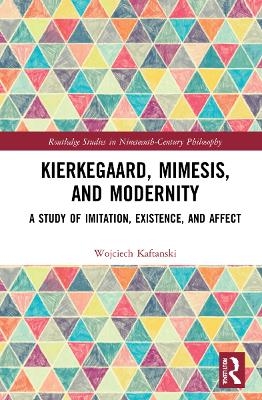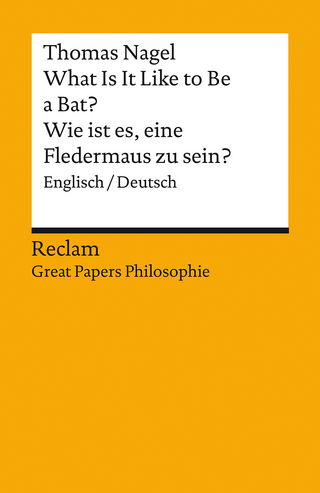
Kierkegaard, Mimesis, and Modernity
A Study of Imitation, Existence, and Affect
Seiten
2024
Routledge (Verlag)
978-0-367-69665-8 (ISBN)
Routledge (Verlag)
978-0-367-69665-8 (ISBN)
This book challenges the widespread view of Kierkegaard’s idiosyncratic and predominantly religious position on mimesis. In doing so, it offers a more nuanced understanding of the relation between aesthetics and religion in his thought.
This book challenges the widespread view of Kierkegaard’s idiosyncratic and predominantly religious position on mimesis.
Taking mimesis as a crucial conceptual point of reference in reading Kierkegaard, this book offers a nuanced understanding of the relation between aesthetics and religion in his thought. Kaftanski shows how Kierkegaard's dialectical-existential reading of mimesis interlaces aesthetic and religious themes, including the familiar core concepts of imitation, repetition, and admiration as well as the newly arisen notions of affectivity, contagion, and crowd behavior. Kierkegaard’s enduring relevance to the malaises of our own day is firmly established by his classic concern for the meaning of human life informed by reflective meditation on the mimeticorigins of the contemporary age.
Kierkegaard, Mimesis, and Modernity will be of interest to scholars and advanced students working on Kierkegaard, Continental philosophy, the history of aesthetics, and critical and religious studies.
Chapter 6 of this book is freely available as a downloadable Open Access PDF at http://www.taylorfrancis.com under a Creative Commons Attribution-Non Commercial-No Derivatives (CC-BY-NC-ND) 4.0 license.
This book challenges the widespread view of Kierkegaard’s idiosyncratic and predominantly religious position on mimesis.
Taking mimesis as a crucial conceptual point of reference in reading Kierkegaard, this book offers a nuanced understanding of the relation between aesthetics and religion in his thought. Kaftanski shows how Kierkegaard's dialectical-existential reading of mimesis interlaces aesthetic and religious themes, including the familiar core concepts of imitation, repetition, and admiration as well as the newly arisen notions of affectivity, contagion, and crowd behavior. Kierkegaard’s enduring relevance to the malaises of our own day is firmly established by his classic concern for the meaning of human life informed by reflective meditation on the mimeticorigins of the contemporary age.
Kierkegaard, Mimesis, and Modernity will be of interest to scholars and advanced students working on Kierkegaard, Continental philosophy, the history of aesthetics, and critical and religious studies.
Chapter 6 of this book is freely available as a downloadable Open Access PDF at http://www.taylorfrancis.com under a Creative Commons Attribution-Non Commercial-No Derivatives (CC-BY-NC-ND) 4.0 license.
Wojciech Kaftanski is a Postdoctoral Fellow and Communications Associate at the Human Flourishing Program at Harvard University. He is a former Postdoctoral Research Fellow at Husserl Archives/ Centre for Phenomenology and Continental Philosophy at KU Leuven, and a former House Foundation Fellow at the Hong Kierkegaard Library at St. Olaf College.
Introduction
1. Representation, Originality, Genius
2. Repetition, Recollection, Time, Meaning
3. Selfhood, Text, Redoubling
4. Imitation
5. The Prototypes
6. Affect, Admiration, Crowd
7. Comparison, Existential Mimesis, Authenticity
Conclusion
| Erscheinungsdatum | 05.10.2021 |
|---|---|
| Reihe/Serie | Routledge Studies in Nineteenth-Century Philosophy |
| Verlagsort | London |
| Sprache | englisch |
| Maße | 152 x 229 mm |
| Gewicht | 371 g |
| Themenwelt | Geisteswissenschaften ► Philosophie ► Philosophie der Neuzeit |
| Geisteswissenschaften ► Religion / Theologie | |
| Sozialwissenschaften | |
| ISBN-10 | 0-367-69665-7 / 0367696657 |
| ISBN-13 | 978-0-367-69665-8 / 9780367696658 |
| Zustand | Neuware |
| Informationen gemäß Produktsicherheitsverordnung (GPSR) | |
| Haben Sie eine Frage zum Produkt? |
Mehr entdecken
aus dem Bereich
aus dem Bereich


